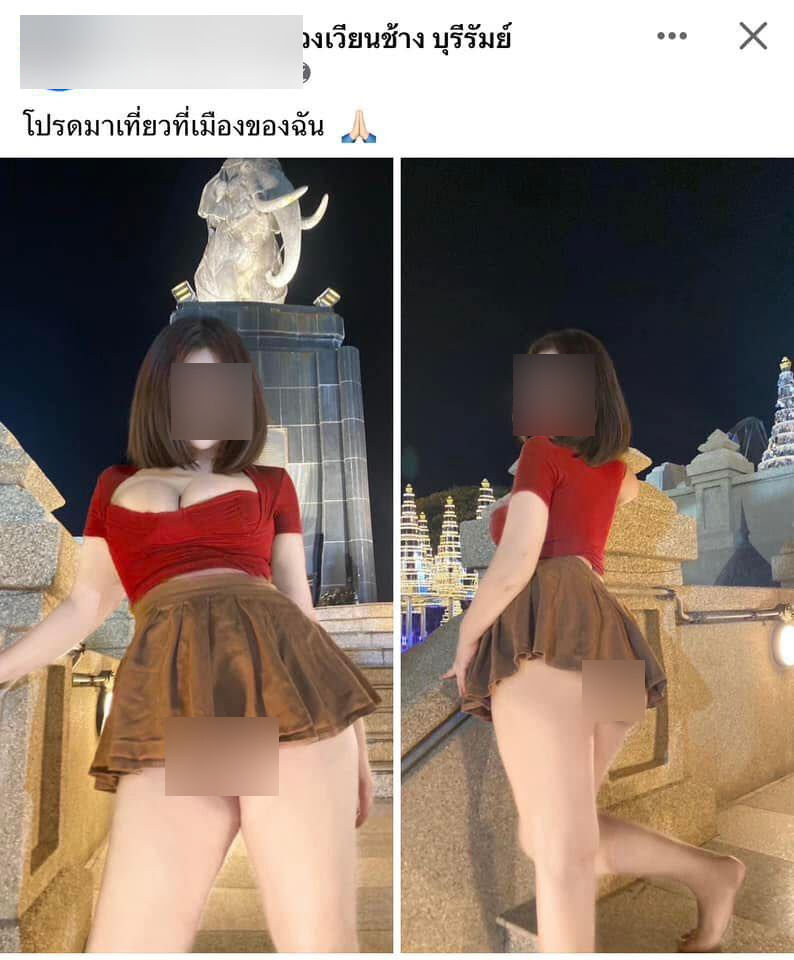Woman apologises for provocative photos at Rama I monument

Social media erupted with controversy when a provocative, scantily-clad young woman, followed by over 200,000 people on Facebook, posted suggestive, racy images of herself with the monument of King Rama I, the Great Statue of King Buddha Yodfa Chulaloke, in the background. Her caption, “Please come visit my city,” quickly drew criticism, particularly from the people of Buriram province.
The woman’s photos, which were viewed as disrespectful, sparked heated online debates, with some delving into her background, extending the scrutiny to her family. Following the backlash, the woman posted an apology on her Facebook page, kneeling before the monument, expressing remorse for overlooking the feelings of the people of Buriram and for not honouring their reverence for the historical figure.
Santhaya Wattanakosal, a renowned clinic owner known for providing free treatments on royal family anniversaries and a member of the Love Rama I Group, stated that he felt uncomfortable with the woman’s actions.
He explained that King Buddha Yodfa Chulaloke founded the city of Buriram, initially called Mueang Pae and that such places should be respected. Santhaya accepted the woman’s apology, given her act of contrition at the monument, but emphasized the importance of awareness and respect for sacred sites.
Orathai Phalaphon, the 59 year old caretaker of the Rama I monument, shared her discomfort with the incident. She highlighted the site’s significance, visited regularly by locals, athletes, and members of the Buriram United football team for ceremonial respects.
Orathai believed that a mere online apology was insufficient and that a proper ceremonial apology should be made in person, with notification to the authorities for appropriateness.
The situation underscores the delicate balance between social media expression and cultural sensitivity. It serves as a reminder that while social media can amplify tourism promotion, it also requires a deep understanding of historical and cultural significance to avoid offence.
As the online community continues to navigate these complexities, respect for cultural landmarks and historical figures remains a cornerstone of Thai values, reported Sanook.

Latest Thailand News
Follow The Thaiger on Google News:


























